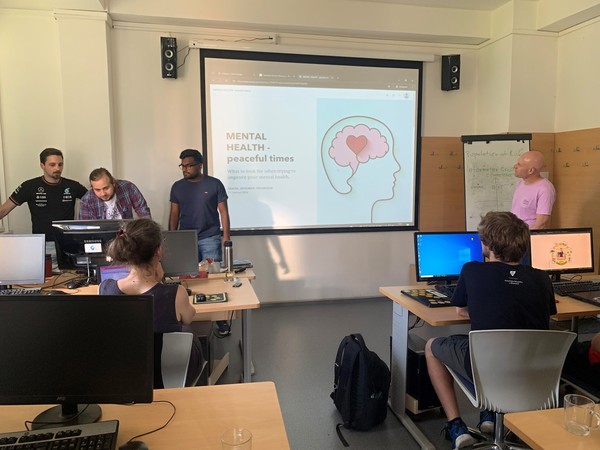The Department of Geoinformatics hosted the GeoSpatial Summer School 2024 (themed GIScience & Health) in late June, bringing together students, scientists and professionals to explore the connections between geoinformatics and various aspects of health sciences. The main goal of the event was to introduce participants to the issue of “geohealth” through a series of lectures, workshops and practical exercises. An interdisciplinary platform was created at the summer school, with which it was possible to share, discuss, and develop experiences and ideas, and even to work directly with real data in the form of spatial analyses.
“Despite limited funding options, we want to keep the tradition of summer schools at the Department of Geoinformatics alive. These very narrowly focused events often go beyond the scope of the regular study programmes. The participants are thus much more motivated to learn something,” said Vít Pászto, the main organiser of the summer school. “I think that bringing together different disciplines has the great benefit of allowing us to step out of our narrow disciplinary focus and start thinking about other aspects and applications of our specialisations,” he added.
The summer school was attended by students from the Czech Republic and Germany. A number of interesting personalities also accepted the invitation. “Michal Menšík from the Faculty of Medicine discussed decision-making processes in healthcare and also mentioned medical ethics. At the end, he presented his research on how the amount of money spent is so closely related to the quality of healthcare,” Pászto added.
Other experienced experts included Lukáš Marek, who is currently a researcher at the University of Canterbury. His two-day workshop focused on advanced spatial analyses in the R computer program, via exploring the availability of e-cigarette vape shops. Jiří Šmída, together with Julia Mokrá from the Technical University of Liberec, dealt with geospatial communication and the spread of infodemics, i.e. the rapid spread of accurate or inaccurate information, for example, about a specific disease.
“The summer school concluded with a final seminar where participants evaluated their findings and discussed future directions for research and collaboration in geohealth. We are planning another edition of the summer school next year. Its theme will be published on the website and on social media,” Pászto concluded.
